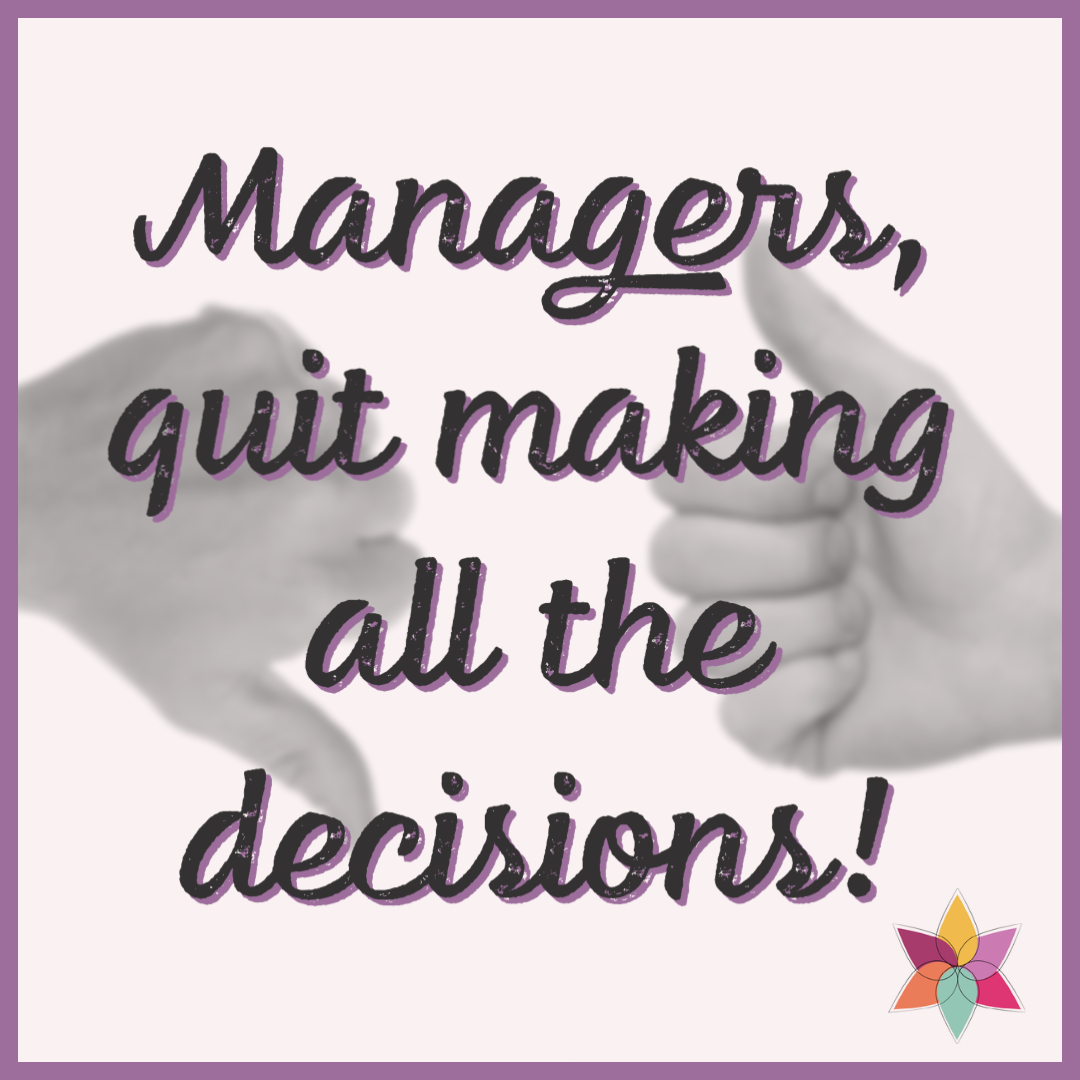
Managers, quit making all the decisions!
Some of the things I hear a lot when coaching managers is:
“I want to develop my team, but I don’t have any time.”
“I am so consumed with the day-to-day that I cannot focus on the strategic planning for my department.”
“I wish my team would step-up and take on more.”
What managers fail to realize is that they create some of their own problems by making too many decisions. By assuming the primary decision-making role, managers fail to develop capabilities that free up their time to focus on strategic issues. Being intentional to let go unleashes the talents of the organization and helps managers become more fulfilled in their own roles.
Why is this such a common problem for managers?
- We default to the top.
It is embedded in many cultures to defer up. We are trained from an early age to ask our parents, teachers, and those in authority for answers. Likewise, in organizations, it is common for team members to double check before stepping out and making decisions.
- Managers like the power.
Many managers like being in charge. It makes them feel valuable and knowledgeable. The ego is involved here. For those who like this power, their capacity and impact will always be limited.
- It’s an unconscious reaction.
In the rush of the day, managers unconsciously react just to keep things moving. Managers don’t think twice. They solve the problem, make a decision and move on.
- It produces rewards.
Many managers are promoted because they are good problem solvers and decision-makers. It’s what makes them shine. Making decisions produces results and is rewarded. Helping others become good decision-makers requires a commitment to the long-term and does not always produce immediate rewards.
It is important managers be intentional to change this pattern.
Triggers
The next time a team member says:
“What should I do about…….???
“How do you want me to handle…….???
“What solution should we pursue…..???
“What do you think is best……???
3 Critical Questions
Instead of providing an answer, ask yourself these questions:
- Should I make this decision?
- Will the result of a poor decision be catastrophic?
- What can be gained by letting someone else decide?
10 Coaching Questions to Guide Decision-Making
Instead of offering a solution or directing a course of action, use these coaching questions to help guide the decision-making process:
- What do you think is the best course of action?
- What have you considered?
- What options have you explored?
- What outcomes would you like to achieve?
- What is your gut telling you is the best decision?
- What is holding you back from moving forward?
- What information will help you make a good decision?
- What is the worst that can happen?
- What is the best that can happen?
- How can I support you in this decision?
By redirecting the decision-making responsibilities away from a top-down approach, managers can start building greater capabilities in others. By tapping into the brainpower of the organization, creativity will flourish and engagement will improve. Ultimately, by empowering employees to make decisions, managers will have greater time to spend on more strategic work.





